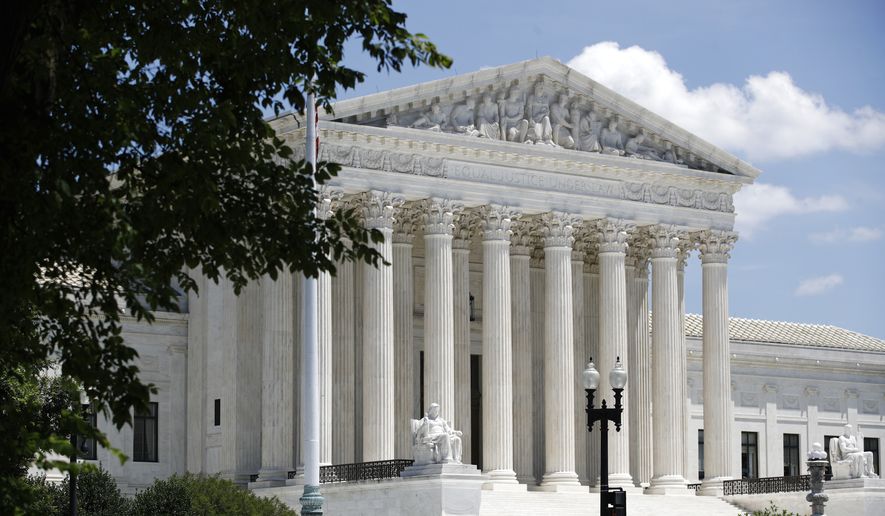The Supreme Court announced Thursday it would hear a First Amendment challenge over flying a Christian flag on city property in Boston.
The legal battle began when the group Camp Constitution wanted to fly a Christian flag, displaying a Latin cross, in celebration of Constitution Day and Citizenship Day in 2017.
The city denied the application — its first denial since 2005 after reviewing 284 requests.
The reason, according to the city, was that it had not had religious banners flown on its flagpoles in the past. However, the city has flown “gay pride” flags.
Boston officials allow private groups to celebrate events and fly flags on City Hall’s flagpoles, making them a public forum. Groups have to get permission to unfurl their banners.
Lower courts ruled for the city. But on Thursday, the high court said it would review the Christian group’s lawsuit.
SEE ALSO: Supreme Court takes up campaign finance case launched by Ted Cruz
At least four justices voted to hear the case during the court‘s upcoming term, which kicks off next week.
The case is Shurtleff and Camp Constitution v. City of Boston.
Mat Staver, the founder of Liberty Counsel, which is representing the group, said they look forward to arguing their discrimination case before the justices.
“The city cannot deny the Christian flag because it is ‘Christian’ and allow every other flag to fly on its flagpoles. There is a crucial difference between government endorsement of religion and private speech, which government is bound to respect. Censoring religious viewpoints in a public forum where secular viewpoints are permitted is unconstitutional and this case will set national precedent,” he said.
But Rachel Laser, president of Americans United for Separation of Church and State, said the Supreme Court shouldn’t force Boston to fly the religious flag in order to respect diversity.
“To force any American city to erect new religious displays would not only undermine the foundational principle of church-state separation, it would play right into the hands of Christian nationalists who want the government to force everyone to live by their beliefs – threatening everyone’s religious freedom and widening inequality in our communities and country,” she said.
Attorneys representing the city of Boston declined to comment on the pending litigation.
• Alex Swoyer can be reached at aswoyer@washingtontimes.com.




Please read our comment policy before commenting.